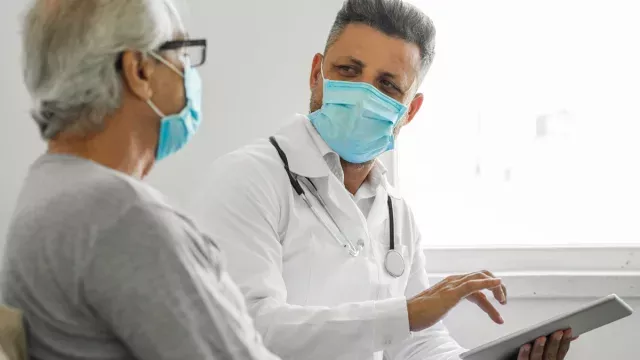In most cases of cancer, the exact cause is unknown. That's because multiple factors—genetic, environmental, and behavioral—often come together at once, leaving you vulnerable to disease. However, there are things you can do to lower your risk, and experts warn that taking part in one popular activity could be putting you at risk for a form of cancer that's especially deadly. Read on to learn which one factor could increase your risk of this dangerous type of cancer, and what symptoms may tip you off to a problem.

When a doctor diagnoses cancer, its type is determined by where the cancer originated. For instance, if cancer begins in the breast and spreads to the liver prior to diagnosis, the patient will be diagnosed with breast cancer—not liver cancer.
This is in part because cancer cells have unique features based on the tissue in which they originate. In other words, cancer that started in the breast will look different under a microscope when compared with cancer cells that originated in the liver.
Sometimes at the time of diagnosis, the cancer has already spread and its primary origin is unknown. When this happens, it's known as cancer of unknown primary (CUP), also called carcinoma of unknown primary or occult primary tumor. In many cases, the cancer's origin is never found, making it exceptionally difficult to plan successful treatment. The good news is that this particular diagnosis is considered rare, affecting just two percent of cancer patients, according to the Cleveland Clinic.
The prognosis is poor for this rare disease.

Because identifying a cancer's type is among the first steps in any cancer treatment plan, those with CUP often face a poor prognosis. "When they are first diagnosed, these cancers have already spread beyond the site where they started," explains the American Cancer Society (ACS). "This means that the types of treatments that are most likely to be successful, such as surgery or radiation therapy, are not likely to result in a cure in most cases."
To make matters worse, CUP is often caused by "fast-growing or fast-spreading cancers," the organization adds. The average length of survival for CUP patients is nine to 12 months following diagnosis.
However, as ACS notes, "this can vary widely depending on many factors, including the cancer cell type, where the cancer is found, how far the cancer has spread, a person's general health, the treatments received, and how well the cancer responds to treatment." They add that these numbers "can't predict what will happen in any particular person's case," so it's important to speak with your doctor to discuss how these statistics may apply to you.
Drinking alcohol may increase your risk of CUP.

iStock
Experts from Cancer Research UK say there are several risk factors which may increase your odds of developing cancer of unknown primary. One of those is drinking alcohol—especially in excess. "There is some evidence that suggests drinking alcohol may increase the risk of CUP," the organization states. "Cutting down on alcohol has lots of benefits, including reducing your cancer risk," they urge, adding that the recommended limit is 14 units of alcohol per week. (A glass of wine usually equals about two to three units of alcohol, while a cocktail might contain four or even more.)
Other risk factors for CUP include being over 75, smoking, and being overweight or obese.
For more health news sent directly to your inbox, sign up for our daily newsletter.
CUP may cause a wide range of symptoms.

Cancer of unknown primary can have a wide range of symptoms, since it can have a wide range of underlying causes. However, the Mayo Clinic notes that generally speaking, CUP cases may present with pain, a lump under the skin, changes in bowel habits, frequent urination, persistent cough, fever, night sweats, or unintended weight loss.
Speak with your doctor if you notice any of these symptoms—especially if their cause is unknown.




